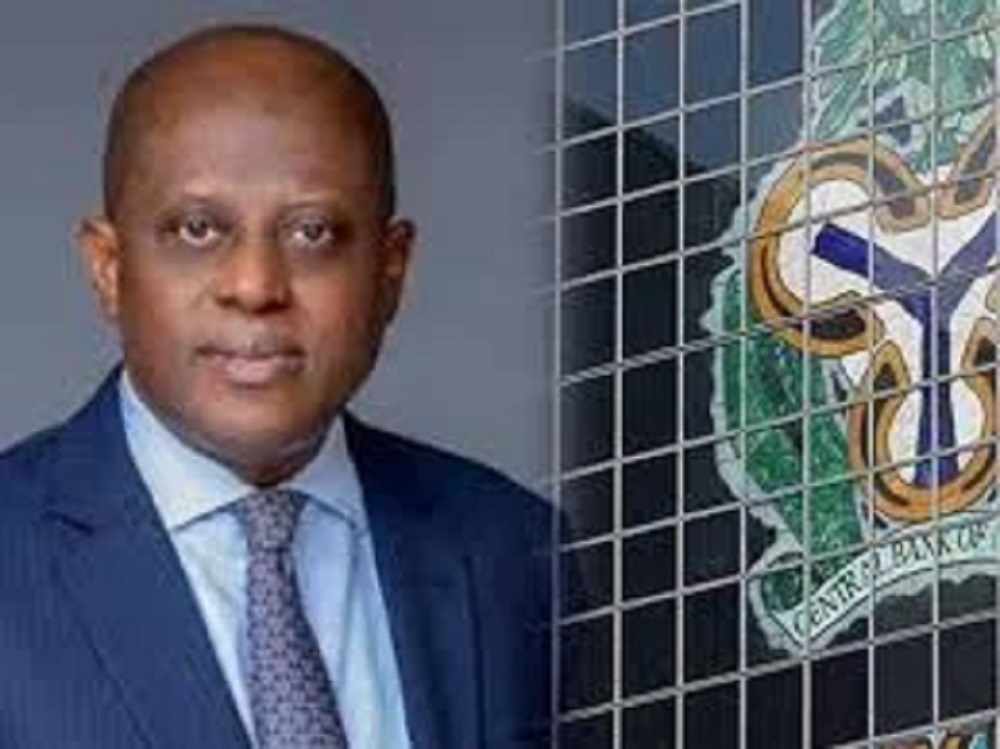The Governor of Central Bank of Nigeria (CBN), Olayemi Cardoso, has admitted the challenges of the Nigerian economy, noting that the impasse is just a passing phase as the country faces prosperity soon..
According to him, the transformation agenda of President Bola Tinubu administration is designed on a progressively dynamic platform for the bailout from the economic depression.
The governor gave the assurance on Wednesday at the launch of 2024 Macro-economic Outlook with the theme; ‘’Economic Transformation Roadmap: Medium-Term Policy Priorities’’ in Lagos.
Advancing the importance of the programme to the economy, Cardoso said that the pivotal role of the Nigerian Economic Summit Group (NESG) could not be overemphasised.
He noted that the crucial role of the group was to facilitate the formulation and implementation of national growth and transformation of the Nigerian economy for sustainable development.
To him, the NESG, without doubt, had become one of the leading platforms for Public-Private Partnership in the country, commending the body for its positive role in national development.
The CBN governor also acknowledged the various economic challenges and proposed solutions by stakeholders, assuring that the country was finding a lasting solution to the hydra-headed menace challenging the growth of the economy.
The Chairman, NESG, Mr Niyi Yusuf, while delivering his opening address, said the year 2023 presented challenges, marked by the rigorous implementation of demonetisation policies, widespread insecurity and a general election.
These, he noted, aggravated pre-existing macro and structural issues.
He said that these challenges significantly impacted Nigeria’s socio-economic landscape and macroeconomic performance.
Yusuf, however, said that with the dawn of a new government, the country is ready with political and economic opportunities to address these challenges, optimise its potential and achieve vital developmental objectives.
The NESG boss further explained that the Russia-Ukraine crisis, global supply chain disruptions and energy and food crises heightened economic vulnerability throughout the year.
According to him, global policy rate rose in 2023 affected Nigeria, worsening inflation rates and impeding economic growth.
He noted that stringent government reforms, including the removal of fuel subsidy and exchange rate alignment, further constrained the real sector, suppressing overall economic outcomes.
“In 2023, Nigeria experienced fragile economic growth characterised by escalating inflationary pressures, exchange rate depreciation and fiscal constraints.
“With our growing population, these challenges impeded prosperity, hindered productivity, curtailed the real sector, and diminished the positive impact of growth outcomes on the quality of life of Nigerians.
“Despite a trade surplus, foreign capital receipts were below expectations on the external front and the official and unofficial naira exchange rates depreciated beyond the planning expectations of most businesses, ” Yusuf said.
The NESG chairman said that Nigeria’s reference crude oil price which declined, posed fiscal challenges as public debt rose, with higher prices in 2023.
According to him, the situation resulted in a decline in the real purchasing power of the minimum wage and an estimated four million Nigerians were pushed into poverty.
While the government has implemented interventions, he stressed that more efforts were needed to reverse the country’s weak and non-inclusive growth narrative.
He said, “Building on the NESG #NES29 theme, “Pathways for Sustainable Economic Transformation and Inclusion”, this year’s macroeconomic outlook underscores “Medium-term Policy Priorities” to expedite the transformation process and enhance the socio-economic well-being of Nigerians.
“The economic transformation roadmap outlines three phases of policy sequencing, focusing on monetary stability, effective fiscal management, local content improvement, domestic productivity enhancement, incentives. This is to motivate private sector investments, and human, social and natural capital development.
“As we delve into these policy priorities, we must emphasise the pivotal role of a robust policy environment in laying the foundation for sustainable macroeconomic stability and economic transformation.
“We recognise the current administration’s efforts in stabilising the economy but given the depth of the problems, more still needs to be done and quickly too. We must not relent to build the Nigeria of our dreams.
“I implore every stakeholder to rise to this occasion and contribute to our quota in rebuilding our economy.”
He noted that the NESG would continue its collaborative efforts with the federal and subnational governments to achieve these transformative goals.
He, however, noted that a concerted and coordinated approach and effective policy implementation would propel Nigeria toward a more resilient, inclusive and prosperous future.
The Chief Executive Officer, NESG, Dr Tayo Aduloju, said that the report was designed with the goal of offering substantive insights into Nigeria’s economic transformation agenda.
“We earnestly desire that esteemed stakeholders within Nigeria’s economic, business and policy landscapes find this report to be an insightful and engaging resource.
“The findings and analyses herein will prove instrumental in informing strategic decisions and fostering a collaborative environment for sustainable economic growth and transformation,” Aduloju said.

